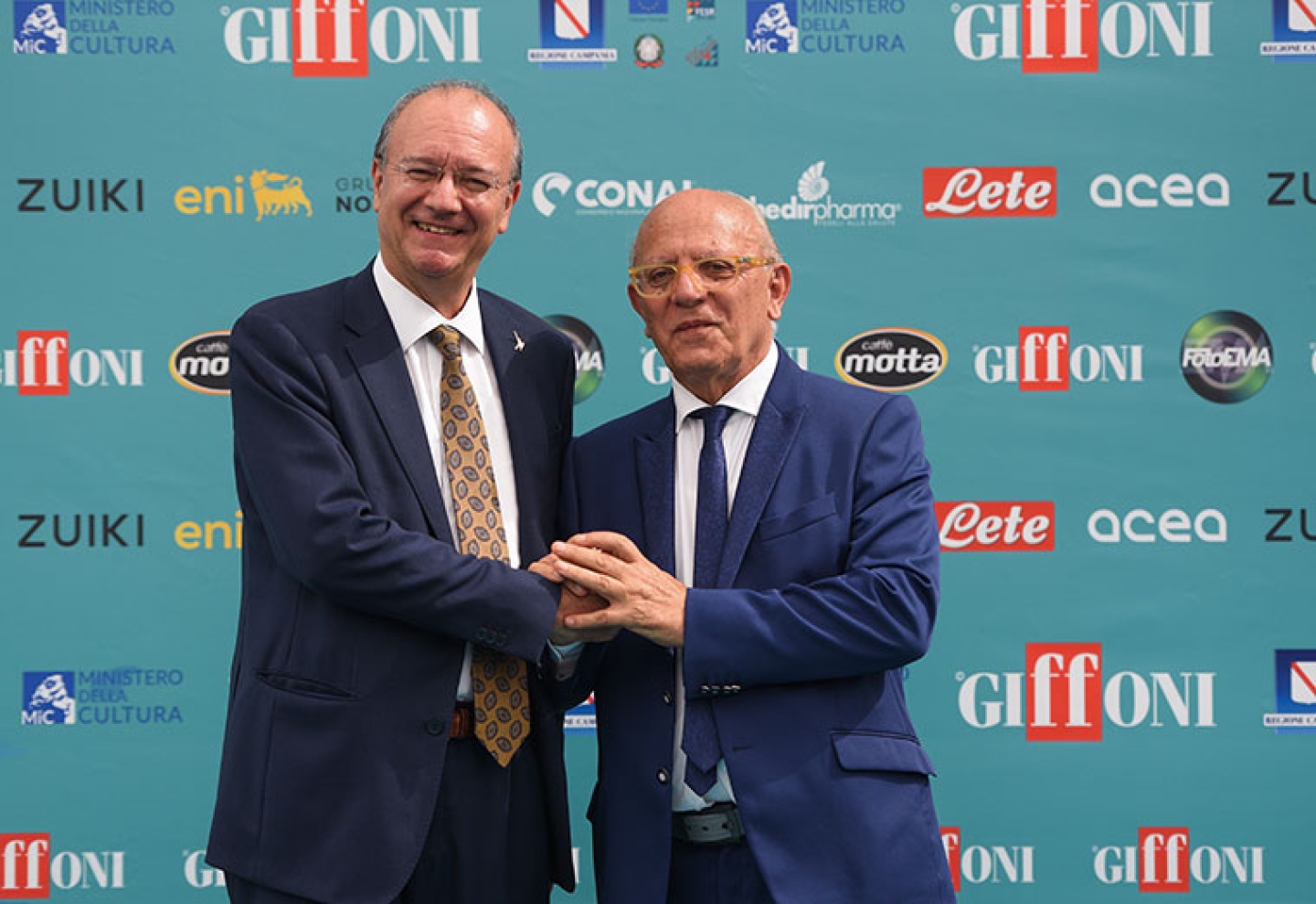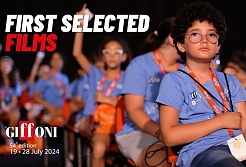School is the living heart of Giffoni as well as the driving force of our country. A school that changes to develop young people’s prominence. That’s the meaning of Giuseppe Valditara’s – Ministry of Education and Merit – visit.
Welcoming him to the Multimedia Valley there IS Claudio Gubitosi, the founder of Giffoni, Pietro Rinaldi, the president of dell’Ente Autonomo Giffoni Experience, Jacopo Gubitosi, the general director of Giffoni, and Giffoni Valle Piana mayor Antonio Giuliano.
The meeting with the young boys and girls was in Sala Blue. This meeting is part of the Safer Internet Centre – Generazioni Connesse activities, that the Ministry itself dedicated to cyber security with the partnership of several enterprises – among them Giffoni with the Youth Panel programme - who deal with internet safety.
Upon his arrival, the minister said: “The most beautiful thing about Giffoni is the brilliant way it motivates its surrounding area. It’s an occasion for the youth, including the five hundred contracts made that translate into five hundred people as well. Everything is beautiful and positive. Young people should always be the main characters, mainly in schools.” What is being done about it? Amid the other actions the Ministry mentions the one on road safety education: “When Matteo Salvini (Ministry of Infrastructure and Transport) and I passed the plan, our wish was for young people to be witnesses, and, thanks to peer tutoring, they can narrate their experiences and build an educational storyline. I discover the same feeling here and that’s also something modern.”
School is the backbone of our country. And Italy moves at two different rates: the north and the south seem to be on parallel lines. Valditara explains: “I said that’s morally unacceptable that Italy is split in half. We need to do something serious and important about it. And that’s why Agenda Sud is born: we have selected 240 schools on the verge of dispersion, from every grade.” This is an ambitious and experimental programme. “We will send“ added the Minister, “more teachers – especially of maths, Italian, and English – in these schools and for the first time we will allocate significant resources to extracurricular activities, which could be held in the afternoon or even in summer. Next, there will be an extension of school time by introducing the full time.”
In the room, the questions focus on the often-controversial relationship between teacher and student. Valditara understands the young people’s point of view, but he must underline the value that the teaching body has today: ”Schools must teach two important principles: freedom – fundamental for building conscious citizens – and work. Schools must educate and train for work. In this perspective, we have included financial education as a subject to make our youth even more conscious.” A teacher is a gateway to all this, a point of connection between school and society: “Teachers have nowadays little motivation, due to their salary, and the stress deriving from their job” – Valditara continues – “We ask them to be passionate about their job. During these months I have met with many teachers and principals that embody what is good about school. We just need to water the plant and it will be back in its former splendour.”
Regarding school salaries, Valditara knows that it’s always been a sensitive subject, because teaching it’s not a highly remunerated job. On this matter, he says: “Our first step toward this issue was sealing a better deal. We need to give more opportunities – like tutoring – and involve them in extracurricular activities – in the afternoon or in summer. We ask them for more and we pay them more so our talented children could become the backbone of our country. We need to take care of schools and teachers because theirs is the best job in the world. After all, ensuring a young person’s future is the most beautiful thing to do”.
Another topic was internet safety, something that for many years is on the mind of the Minister thanks to the Safer Internet Centre programme: “It’s an important action, making the internet safer for all; it’s a tool for democracy that could also be dangerous, so it needs to be used wisely. The pillars of internet safety are fundamentally three: building a safe path and safe accessibility to it, and teaching its risk, to provoke young people’s creativity and imagination through a positive usage of the internet. I believe that this project is doing all this.”
New Technologies are boundaries to break down, in order to put them to use for the improvement of our educational programme. Is it possible? The Minister believes that it can, and it should be done. He said: “We must not fear innovation, like AI. To do it it’s crucial to train both the teachers and the students. Infinites are the possibilities with this instrument, mostly regarding the customization of education, which is a priority for me. So, we decided to invest Pnrr (National Recovery and Resilience Plan) funds of 1.2 billion euros for the creation of digital labs, and 450 million for digital education. My dream is to use these structures for the modernisation of our teaching.” However, digital technologies can’t alter the essence of the school and its function: “School keeps being a teaching community, made of people and their interpersonal relationships, which are a crucial tool for the growth of young people. Digital technologies enter this logic, with the individual at its centre. Our school is the school of June 2 (Italian Republic Day), a school that fulfills our Constitution’s values.”








